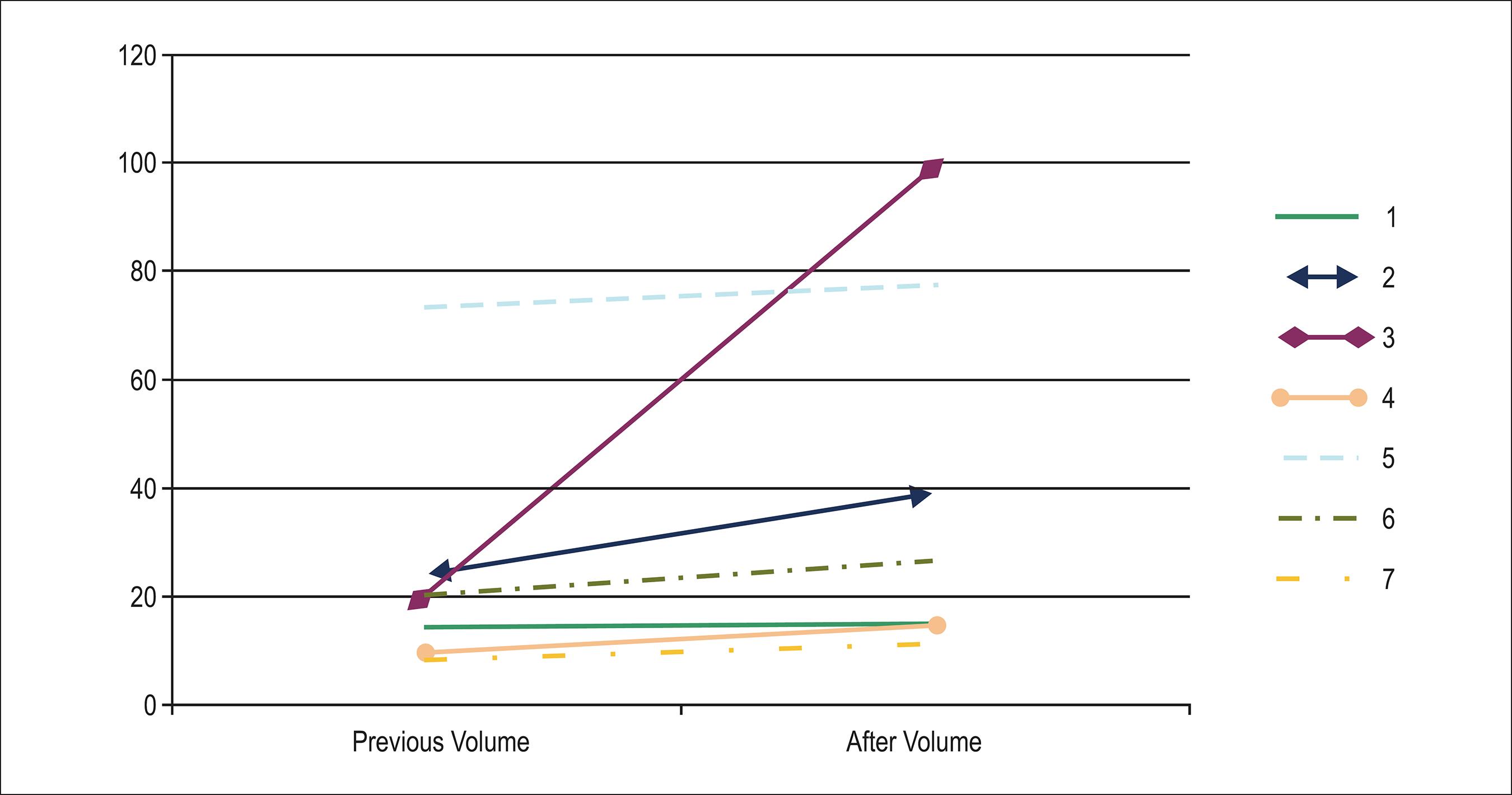Abstract
Introduction:
Cardiac allograft vasculopathy (CAV) is a major limitation for long-term survival of patients undergoing heart transplantation (HT). Some immunosuppressants can reduce the risk of CAV.
Objectives:
The primary objective was to evaluate the variation in the volumetric growth of the intimal layer measured by intracoronary ultrasound (IVUS) after 1 year in patients who received basiliximab compared with that in a control group.
Methods:
Thirteen patients treated at a single center between 2007 and 2009 were analyzed retrospectively. Evaluations were performed with IVUS, measuring the volume of a coronary segment within the first 30 days and 1 year after HT. Vasculopathy was characterized by the volume of the intima of the vessel.
Results:
Thirteen patients included (7 in the basiliximab group and 6 in the control group). On IVUS assessment, the control group was found to have greater vessel volume (120–185.43 mm3 vs. 127.77–131.32 mm3; p = 0.051). Intimal layer growth (i.e., CAV) was also higher in the control group (27.30–49.15 mm3 [∆80%] vs. 20.23–26.69 mm3 [∆33%]; p = 0.015). Univariate regression analysis revealed that plaque volume and prior atherosclerosis of the donor were not related to intima growth (r = 0.15, p = 0.96), whereas positive remodeling was directly proportional to the volumetric growth of the intima (r = 0.85, p < 0.001).
Conclusion:
Routine induction therapy with basiliximab was associated with reduced growth of the intima of the vessel during the first year after HT.
Keywords
Vascular Diseases / physiopathology; Heart Transplantation; Antibodies, Monoclonal, Murine-Derived / admininstration & dosage; Immunosuppressive Agents




